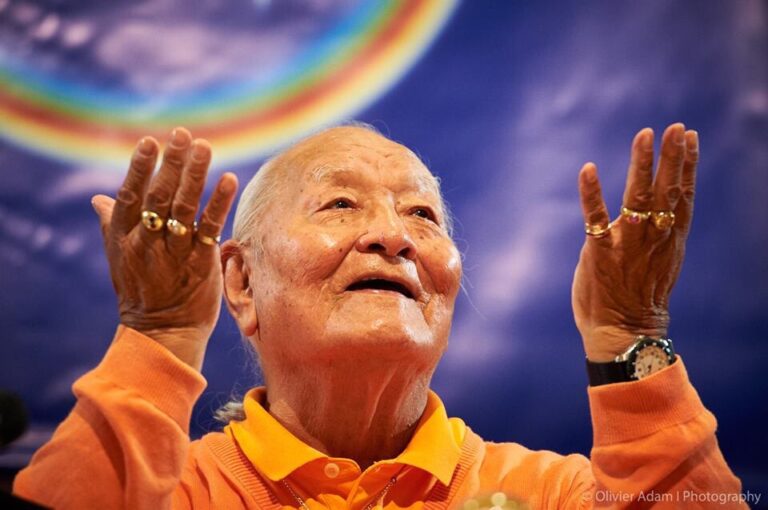Chögyal Namkhai Norbu: Dzogchen in the Western World

Chögyal Namkhai Norbu was one of the most important Tibetan Buddhist masters of the 20th century and one of the main pioneers in introducing the teachings of Dzogchen to the West. He was born in Derge, in eastern Tibet (the Kham region), into a family with deep spiritual traditions. As a child, he was recognized as the incarnation of an important master from the Adzom Drukpa lineage, and later also as the tulku (incarnation) of the learned master Drubwang Shakya Shri Khyentse.
He studied under many great masters, including the renowned Dzogchenpa Rigdzin Changchub Dorje, from whom he received key transmissions. At the same time, he was also a scholar, studying philosophy, logic, grammar, astrology, Tibetan medicine, and history.
In 1959, following the Chinese invasion of Tibet, he emigrated to India and was later invited by Giuseppe Tucci to Italy for academic work. For more than 20 years he taught Tibetan language and history at the University of Naples “L’Orientale,” while also continuing his spiritual and scholarly activities. As a non-monastic master, Chögyal Namkhai Norbu emphasized the importance of integrating spiritual practice with everyday life.
In 1981 he founded the Dzogchen Community, which quickly developed into an international network of centers and students. Its main seat is in Merigar, Italy.
In his teachings, he combined deep erudition with a rare ability to present complex spiritual insights in a way accessible to Westerners. He was also an active advocate for Tibetan culture, founding cultural and educational organizations such as ASIA (Association for International Solidarity in Asia) and the Shang Shung Institute.
He passed away in 2018 in Italy, leaving behind a vast spiritual and cultural legacy.
What is Dzogchen: “The Great Perfection”
Dzogchen — literally “The Great Perfection” — is the deepest and most direct meditative tradition within Tibetan Buddhism, particularly emphasized in the Nyingma school and the Bön tradition.
It is not a philosophical system or a gradual path, but rather the direct recognition of the primordial nature of the mind, which is free, open, and luminous from the very beginning. Dzogchen does not “produce” enlightenment — it teaches that enlightenment is already our fundamental nature. The practice is simply to recognize it and remain in the state of unbroken presence.
Core ideas of Dzogchen:
- Rigpa – the central concept of Dzogchen, meaning “pure, lucid awareness” or “naked presence,” which recognizes itself as awareness inseparable from emptiness. Rigpa is not “something” but rather a state of non-doing, of pure being.
- Three series of Dzogchen teachings:
- Semde– teachings on the mind (recognizing the nature of mind)
- Longde– teachings on space (realizing the all-pervading nature of mind)
- Menngagde– “secret oral instructions,” the most advanced level of Dzogchen, based directly on experience
- Trekchö – the practice of “cutting through delusion,” leading to the direct recognition of rigpa.
- Thögal – the practice of “direct crossing,” leading to the spontaneous realization of Buddhahood, often associated with visions of light and the attainment of the “rainbow body.”
- No conventional asceticism – Dzogchen stresses that one does not need to leave the world or abandon ordinary life. Practice is possible in any situation — it depends on the state of mind, not on external conditions.
Dzogchen is not “better” than other paths — but its radical directness requires readiness. It always depends on a teacher, who gives the direct introduction to the true nature of the mind.

